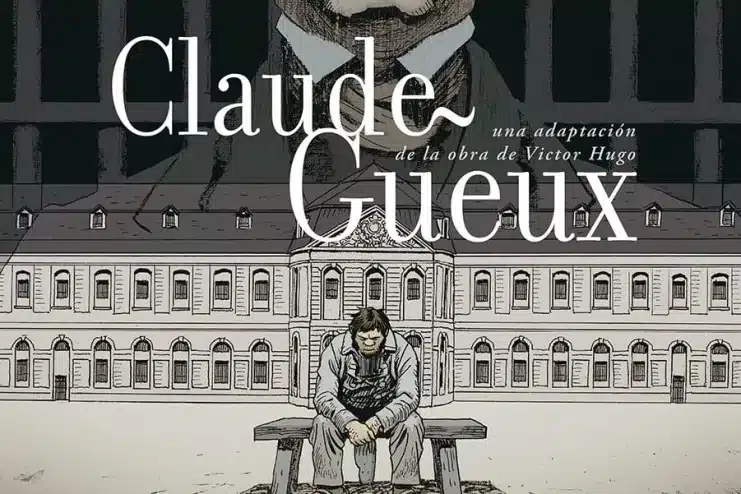
Norma Editorial brings us the most socially significant works from the great Victor Hugo in comic form to Claude Guux.
In 1834, 28 years before he wrote Les Miserables, the French writer Victor Hugo published Claude Gueux, a highly social critic; This provided a lot of food for the society of that time. The play is a critique of the death penalty, arguing that it is impossible for justice to act as a legal partner in such a horrific and inhumane act. The artist mentioned that the key to social progress is education and crime prevention.
More than a century has passed since the work was published, but even today the immortal work of the French playwright raises a debate, because the death penalty is still practiced in many countries, some of which are considered extremely advanced. In this world. The artists Benoît Springer and Séverin Lambour wanted to turn their country’s work into a comic, hoping that the story (based on true events) would reach a wider audience and provoke deep reflection when reading. Thanks to Norma Editorial, the work comes to us in Spain.
The story of Claude Gueux
At the beginning of the 19th century, the capital of France experienced one of the worst winters in its history. Gueuw is a huge and brutally loyal worker who, seeing how his wife and daughter are being treated inhumanely by the heat and lack of food, decides to steal wood and bread that will last him three days. For this crime, Claude was sentenced to five years in prison at Clairvaux. After this, her life passes between the cell, the balcony and the sewing workshop.
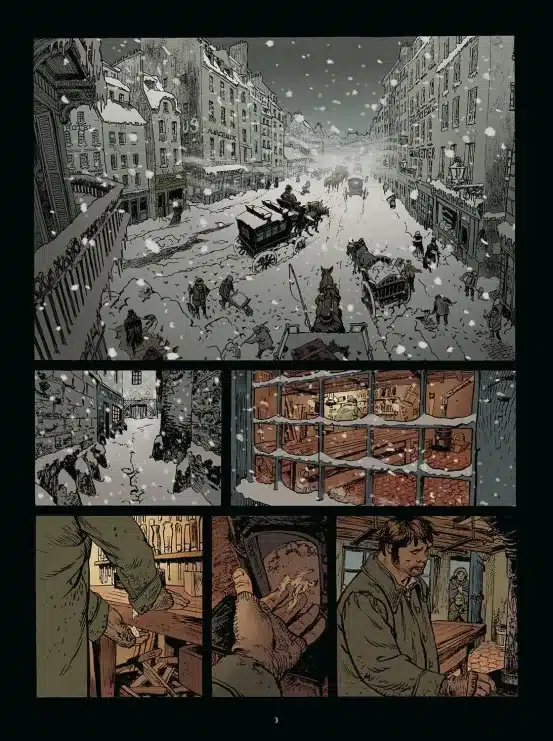
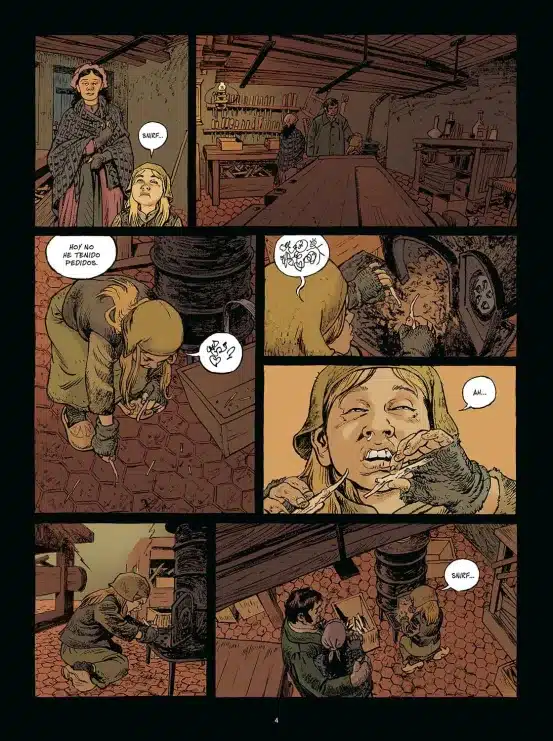

Claude earns the loyalty of the inmates through his kindness and sometimes acts as a leader, upsetting the director of the prison, who is cruel and enjoys using his power. The director’s malice is evident when, for no apparent reason, he separates Claude from his friend Albin, a prisoner who survives by sharing his meager meals. Seeing that his friend was not with him and it would only be a matter of time before he starved to death without more food, he allowed the director to join his friend. The jailer ignores his pleas and this action results in Claude’s deep pain and deep resentment.
In this work, the text of Les Miserables sought to provide a social critique that Springer and Lambourt skillfully transferred to comics. Many messages can be drawn from this comedy such as the struggle between the brutal elite and the people who show great compassion and empathy among themselves. It also serves as a critique of the prison system and of course the death penalty. Treating the prisoners as monsters, the brutality only generates hatred towards the prisoners, until it turns them into what the prison guards and part of the society believe, real monsters.
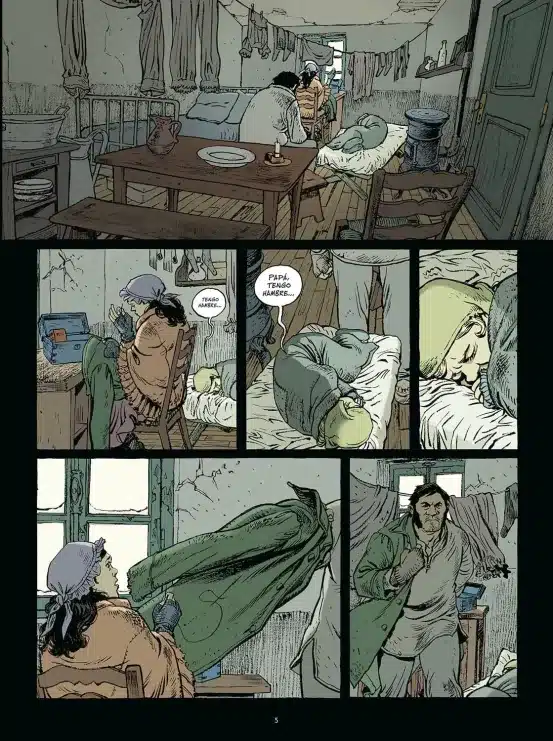



Because of the situation in which a good man is placed in life, we see how he commits a crime that any of us can commit (we are all Claude Gueux). It’s impossible not to get attached to the main character.
The comic is a quick read, no dialogue, but the amazing part about the comic is the visuals. Springer does a great job and shows how to tell a story using only images without the need for speech bubbles or dialogue. The artist portrays the monotonous and tragic life of the prisoners in very similar images, with different angles or color variations, in a very intelligent way that can lead to a loss of time and reality.
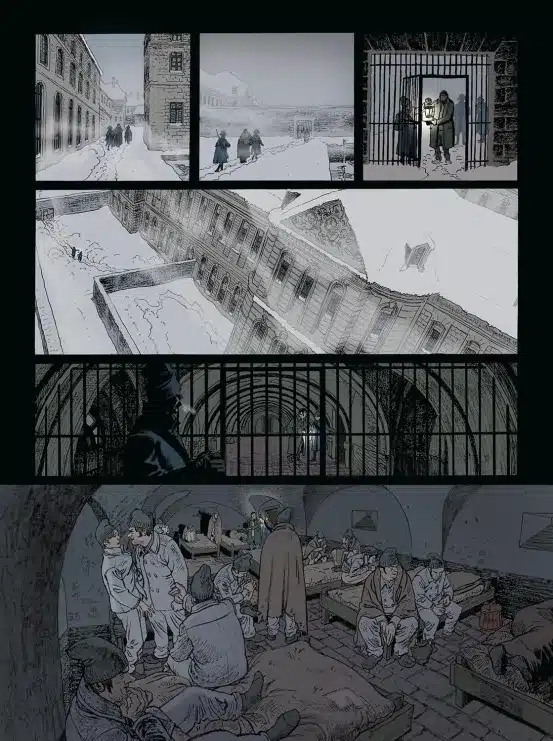

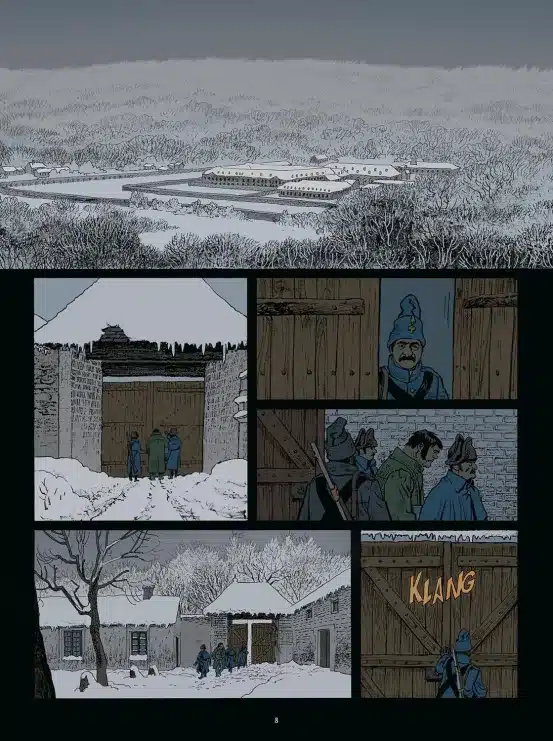

Visually the work is beautiful, the scenery looks great and the character designs are amazing, the characters’ expressions are very vivid and they have the ability to evoke all kinds of emotions from sadness and anger to even hatred.
Norma Editorial Edition by Claude Guux.
Norma again brings us a flawless edition. The comic has a 23.5 x 31 cm hardcover European comic format, more than a great size to read this story. The comic with 72 color pages sells for 23.00 euros.
Claude Gueux is a reviewer of Victor Hugo’s great work at Lambour and Springer. Through the art of the ninth, artists reproduce the death sentence and the justice system as well as the critique of justice. A great script that shines especially for the message in the wonderful visual part of the work that is still relevant today.
Claude Gueux
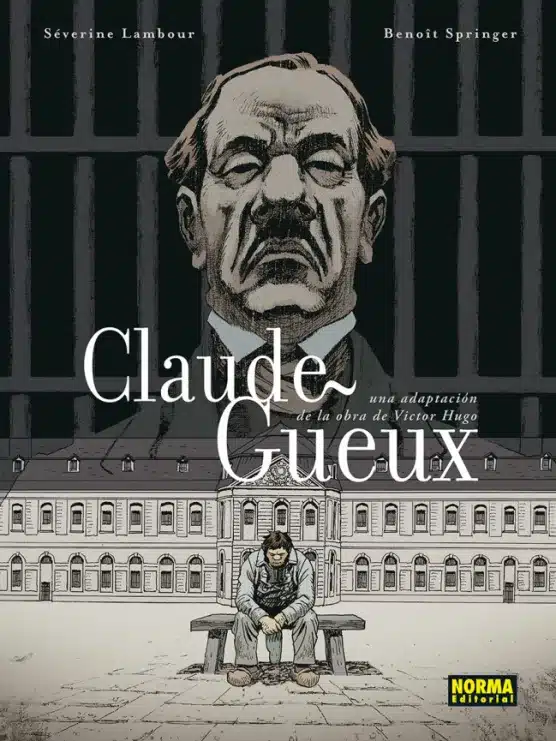

Authors: Lambor | Benoît Springer Victor Hugo
Publisher: Norma Editorial
Format: Hardcover
Dimensions: 23.5 x 31 cm
Pages: 72 in color
ISBN: 978-84-679-6704-3
Price: 23,00 €
Summary: A good adaptation of Victor Hugo’s Unknown Master PEC
The winter of 1831 is one of the harshest memories in the city of Paris. However, men’s justice is more difficult. Claude Goux, a laborer, was sentenced to five years in prison for stealing a loaf of bread and two pieces of wood. Once behind bars, the director’s modest rations, hard work and brutality make him impossible.
Screenwriter Séverin Lambourt and cartoonist Benoît Spring (Leo, Leia) adapt Victor Hugo’s classic story as a hymn to opposition to the death penalty and unity among the oppressed of all classes and circumstances.